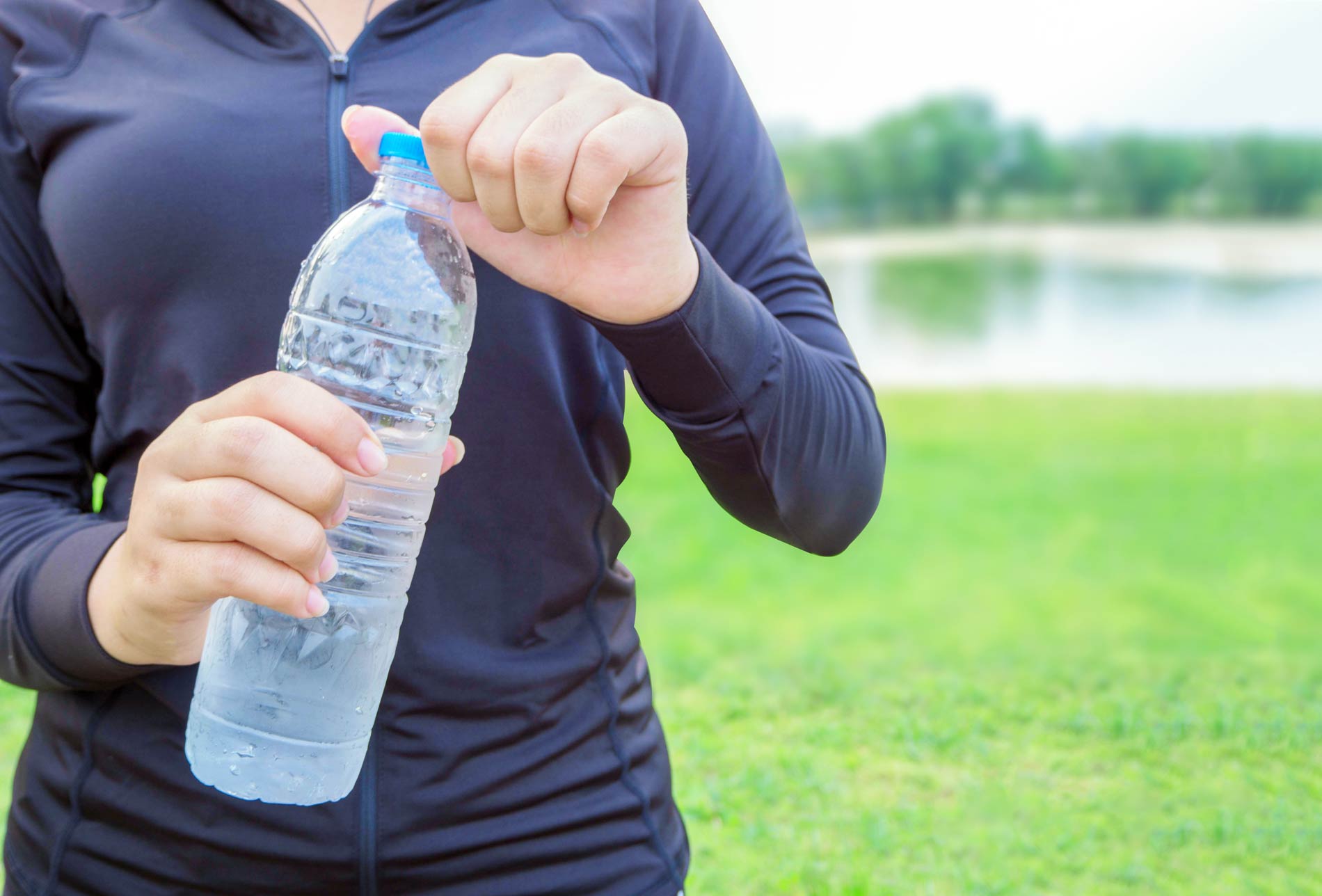One of the biggest environmental crises of our time has to do with the amount of plastic in our oceans. Today, there are 5.25 trillion macro and micro pieces of plastic in our ocean. Worse still, it’s not confined to the oceans—it’s also in tributaries and even in our groundwater. It’s this type of pollution that drives people to buying bottled water. But the problem is, your bottled water isn’t safe, either—in fact, it likely has more plastic than some of these other sources!
A 2018 study by Orb Media at the State University of New York in Fredonia, showed that virtually every single bottle of water, regardless of manufacturer, contains plastic. If you think drinking bottled water is a safe way to avoid plastic, think again.
Does Bottled Water Have Plastic Particles?
The Orb Media study is the largest of its kind ever conducted. Investigative journalists tested 250 bottles from 11 major brands, bought in nine countries, for plastic content in the water. What they found was nothing short of alarming.
For plastic particles in the 100 micron, or 0.10 millimeter size range, tests conducted for Orb at the State University of New York revealed a global average of 10.4 plastic particles per liter.
Further;
The tests also showed a much greater number of even smaller particles that researchers said are also likely plastic. The global average for these particles was 314.6 per liter
Plastics found in the bottles included polypropylene, nylon, polystyrene, polyethylene, polyester and others, including copolymers.
In effect, the study concludes that bottled water contains a significant amount of plastic and that drinking bottled supply is not an effective way to avoid consumption of microplastics—at least, not any more effective than drinking from your tap.

Does this Affect Your Health?
While it’s obvious that drinking this material is bad for you, the question still remains: why? What are these microplastics doing to our bodies that makes them so harmful? The truth is, science is still figuring it out.
One study from the World Health Organization (WHO) claims that microplastics in drinking water are relatively harmless, and that the body is unable to absorb them so it excretes them out as waste. However, there are many other studies that refute this, claiming long-term, lasting damage from ingestion of microplastics.
In an exposé by the Washington Post, experts cite that “microplastic particles can also accumulate polychlorinated biphenyls (PCBs), other chemicals that are linked to harmful health effects, including various cancers, a weakened immune system, reproductive problems and more.”
Often, the biggest issue with microplastics is their size. The smaller they are (<100 microns), the easier they are to consume and the more likely they are to be absorbed by the body. Larger microplastics (>100 micros) are more likely to be excreted as waste. As researchers learn more about how our bodies interact with these smaller plastics, the more evidence of their harm that’s sure to come to light. What’s certain is this: humans aren’t meant to ingest plastics at any level.
Get Clean Drinking Water
By this point, you’re probably wondering what can be done (if anything) to keep microplastics out of your drinking water. The first and best thing you can do it ditch the plastic bottles, since they’re likely your largest source of microplastic intake. Next, invest in a good filtration system.
High-quality filtration systems, like Aquaspace® Countertop or Under-Sink systems, have a media filter designed to capture and remove microplastics from water. Moreover, they’re directly installed to a home’s potable system at the point-of-use, which means preventing these plastics from making it into everything from your drinking water, to the supply you cook or clean with.
For those who prefer the convenience of drinking water on-demand, consider a Carafe® Pitcher or filtering water bottle to replace the plastic bottles you rely on each day. These solutions offer the on-the-go convenience of water bottles, with the assurance that you’re not also consuming plastics.
Plastic in our water supply is a crisis
It’s evident and clear that microplastic pollution is catastrophic and a detriment to both the environment and our bodies. But to stop it, we need to start with our own habits. Bottled fluid comes in plastic bottles—plastic that’s often part of the contamination that goes back out into the environment! Kicking plastic bottles to the curb offer twofold benefits: less plastic in your system and less plastic waste for the environment.
Make sure you’re protecting yourself against microplastics with a filtration system that’s both effective and convenient. Learn more about Aquaspace® water systems today and how they can help protect you against ingesting plastics. Whether you have municipal or well water, the fight against microplastics starts at home.





Leave a comment